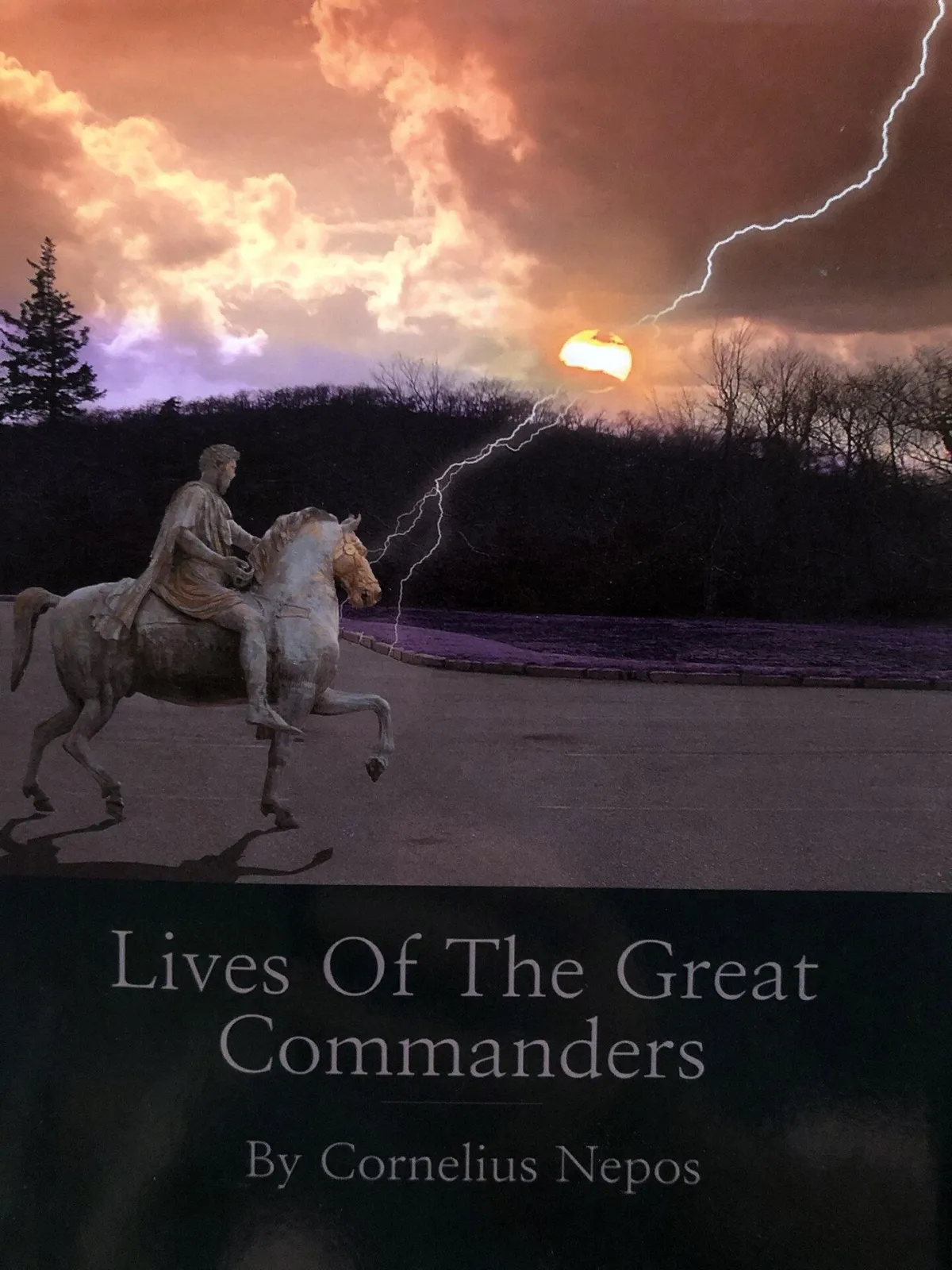
BOOK REVIEW OF QUINTUS CURTIUS’ LIVES OF THE GREAT COMMANDERS -- ARE YOU THE BEST VERSION OF YOURSELF?
(Review of Lives of the Great Commanders translated by Quintus Curtius, written by Cornelius Nepos. This is review 2 of 3 of works by Quintus Curtius. Read my review of Pantheon here.)
A life of decisions. You can recall some of your good ones with fondness, too many poor ones with regret and a true desire for insight and consistency in great decision-making for the future. You want to make better decisions. Better decisions for your personal life and in your professional life. If you are like me, you have always wanted to see more, know more, make better decisions and reach

conclusions that are sound and provide a perspective that lays the ideal foundation for future success. Wow. Sounds superb doesn’t it? Whether supervisor, manager, director, president, parent, friend or advisor, you want the insight necessary to provide to those asking, good decisions for yourself, family and organization. It sounds very simple and straightforward. Others make great decisions ranging from stock purchases and career offers to supply chain and military success. We are capable of doing the same. Since we know we can (the great decision-makers are human just like us) why don’t we? Is it experience, credentials or heritage? No. We can all name individuals of no pedigree making great decisions and creating a life of success. Of course, we can also name those provided with all the means, yet incapable of a standard thought process to maintain the elevation of their life. Some leaders, colleagues and friends believe they can make good and even great decisions. When we consider this point, history has even proven some of them correct.
If we broaden our perspective to learn from the situations and decisions of others and their characteristics within, we can master the ability to make better decisions ourselves. This is especially true when someone else has taken the time to study and scale it for our enjoyment. In this translation of Nepos’ work by Quintus Curtius (yes, he does his own translation from Latin to English), you discover biographical information sharing what Nepos “seeks to know what made his subjects great, and what flaws led them to decline or ruin.” The narrative truly provides the perspective and interpretation of leaders by the character traits highlighting what made them successful and decisive.
Imagine the descriptor of you as a person who was able to perceive, “present conditions with great shrewdness and drew inferences about the future with a remarkable acuity.” A leader used these skills, “achieved renown within a short period of time” and helped save his fellow citizens from destruction. You must meet Themistocles. It is imperative to know how he acquired this capability. If you have not heard of him, picture the time period of the movie 300 and the battles for freedom which the Greeks waged to avoid subjugation by the Persians. Imagine being the leader and warrior who was able to persuade the Athenian citizens to willingly give up the income generated by public silver mines. Income normally distributed individually is now to be used for an investment in overall military readiness (and ships) in preparation for a possible invasion many years in the future following a very successful battle of Marathon. How did Themistocles perceive the Persians would return after their failure at the Battle of Marathon and how did he convince his fellow citizens to trust him with something only he could initially see? These are noteworthy skills to possess when persuasion is required to aid and position your organization for any future changes or competitive conflict.
Perhaps you already know all about Alcibiades. An incredible talent, great heritage and ability to relate and morph into whichever culture he happened to preside presently. When with the Spartans his emulation of self-denial placed him in the ranks of the best. In a culture requiring gluttony, his lavishness lifestyle ranked with kings. When he felt it necessary to inculcate himself with any group, the new lifestyle became him. Alcibiades was incredibly talented and described as politically persuasive; unfortunately, the total adoption of another culture for persuasion seemed to result in a sacrifice of long-term trust. Despite one’s immense talents, completely adopting the way of others to embrace their cooperation may not always be the ideal way to gain trust.
How about Datames? He was a remarkable man. Superior skills, straight shooter, outstanding leadership and superior planning which resulted in numerous victories only to fail under the banner of another’s false friendship. It cost him everything. Which one of us hasn’t had “such a supposed friend”. Can we learn to be wiser to avoid similar mistakes? Or can we gain the courage from examples such as that of Thrasybulus’s Athenian leadership in the fight against tyrants perhaps with similar characteristics of some today?
Quintus provides us with examples of leaders who are ranked as “no one above him in integrity, perseverance, greatness of soul, and in devotion to country”. This is worth reading, if only to provide us a view of what we can or should become. It is not a self-help book in the sense of taking five steps to realization or increased productivity, but it is one of character building and pondering mode a single chapter at a time. The positive type of book which can seep into one’s subconscious to affect who we are and can become as our mind accepts the possibility of strength of character through the examples of others. It may even seep into the soul and make it seem possible for us to evolve into acquiring similar characteristics. We can ascertain awareness from these characters, these personalities, and committed persons of the past. We should gain and attempt to avoid the mistakes which wrap themselves around our ankles and slow us or trip us on our way to becoming the person we should be.
We can learn from leaders who have faced situations dire in nature, in multiple arenas, with varying examples and yet still overcame. It is not a long list of “Principles for Success” but a philosophical approach for living life deeply with graciousness and gratitude. Quintus does a fine job exploring, explaining and prodding us to think and absorb for ourselves the lessons and characteristics gained from others. This book offers the possibility of having a profound impact for a better version within as well as encouragement upon all those around us. It is a high level of responsibility which requires strength of character. It proves we can always learn from those who came before us.
Note: I am not affiliated with the author in any way.
Tagged: book review, Quintus Curtius, classics, Cornelius Nepos
Mindset, Skillset, Peopleset Leadership

